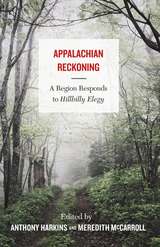
2020 American Book Award winner, Walter & Lillian Lowenfels Criticism Award
Weatherford Award winner, nonfiction
With hundreds of thousands of copies sold, a Ron Howard movie in the works, and the rise of its author as a media personality, J. D. Vance’s Hillbilly Elegy: A Memoir of a Family and Culture in Crisis has defined Appalachia for much of the nation. What about Hillbilly Elegy accounts for this explosion of interest during this period of political turmoil? Why have its ideas raised so much controversy? And how can debates about the book catalyze new, more inclusive political agendas for the region’s future?
Appalachian Reckoning is a retort, at turns rigorous, critical, angry, and hopeful, to the long shadow Hillbilly Elegy has cast over the region and its imagining. But it also moves beyond Hillbilly Elegy to allow Appalachians from varied backgrounds to tell their own diverse and complex stories through an imaginative blend of scholarship, prose, poetry, and photography. The essays and creative work collected in Appalachian Reckoning provide a deeply personal portrait of a place that is at once culturally rich and economically distressed, unique and typically American. Complicating simplistic visions that associate the region almost exclusively with death and decay, Appalachian Reckoning makes clear Appalachia’s intellectual vitality, spiritual richness, and progressive possibilities.
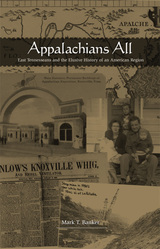
“A singular achievement. Mark Banker reveals an almost paradoxical Appalachia that trumps all the stereotypes. Interweaving his family history with the region’s latest scholarship, Banker uncovers deep psychological and economic interconnections between East Tennessee’s ‘three Appalachias’—its tourist-laden Smokies, its urbanized Valley, and its strip-mined Plateau.”
—Paul Salstrom, author of Appalachia’s Path to Dependency
"Banker weaves a story of Appalachia that is at once a national and regional history, a family saga, and a personal odyssey. This book reads like a conversation with a good friend who is well-read and well-informed, thoughtful, wise, and passionate about his subject. He brings new insights to those who know the region well, but, more importantly, he will introduce the region's complexities to a wider audience."
—Jean Haskell, coeditor, <i>Encyclopedia of Appalachia</i>
Appalachians All intertwines the histories of three communities—Knoxville with its urban life, Cades Cove with its farming, logging, and tourism legacies, and the Clearfork Valley with its coal production—to tell a larger story of East Tennessee and its inhabitants. Combining a perceptive account of how industrialization shaped developments in these communities since the Civil War with a heartfelt reflection on Appalachian identity, Mark Banker provides a significant new regional history with implications that extend well beyond East Tennessee’s boundaries.
Writing with the keen eye of a native son who left the area only to return years later, Banker uses elements of his own autobiography to underscore the ways in which East Tennesseans, particularly “successful” urban dwellers, often distance themselves from an Appalachian identity. This understandable albeit regrettable response, Banker suggests, diminishes and demeans both the individual and region, making stereotypically “Appalachian” conditions self-perpetuating. Whether exploring grassroots activism in the Clearfork Valley, the agrarian traditions and subsequent displacement of Cades Cove residents, or Knoxvillians’ efforts to promote trade, tourism, and industry, Banker’s detailed historical excursions reveal not only a profound richness and complexity in the East Tennessee experience but also a profound interconnectedness.
Synthesizing the extensive research and revisionist interpretations of Appalachia that have emerged over the last thirty years, Banker offers a new lens for constructively viewing East Tennessee and its past. He challenges readers to reconsider ideas that have long diminished the region and to re-imagine Appalachia. And ultimately, while Appalachians All speaks most directly to East Tennesseans and other Appalachian residents, it also carries important lessons for any reader seeking to understand the crucial connections between history, self, and place.
Mark T. Banker, a history teacher at Webb School of Knoxville, resides on the farm where he was raised in nearby Roane County. He earned his PhD at the University of New Mexico and is the author of Presbyterian Missions and Cultural Interaction in the Far Southwest, 1850–1950. His articles have appeared in the Journal of Presbyterian History, Journal of the West, OAH Magazine of History, and Appalachian Journal.
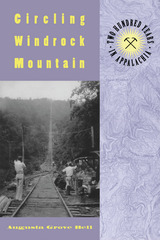
The stories Augusta Bell recounts take us from Oliver Springs—which had its origins in the grist mill Moses Winters built in 1799 and which later became a “boom town” with a fashionable resort hotel—to places like New River Valley, Graves Gap, and Duncan Flats. She depicts the everyday lives of the mountain people as well as the extraordinary events that sometimes shattered those lives—such as the Coal Creek War of 1891–93, in which miners squared off against state militia, and the two mine explosions that came a few years later, sealing up 268 men deep inside the mountain. Bell also tells of happier times, as when the famous Windrock Mine opened above Oliver Springs in 1909.
Tapping a rich lode of folklore and oral tradition, along with other historical sources, Circling Windrock Mountain offers a view of Appalachian life that defies old stereotypes. Far from being static, the communities described here saw an amazing variety of changes to which they adapted with resilience and ingenuity.
The Author: Augusta Grove Bell, a writer who now lives in Charlotte, North Carolina, has been a newspaper reporter and teacher. From 1958 to 1970, she lived in Anderson County, Tennessee, where she worked for the Oak Ridger and wrote feature stories that form much of the basis for this book.
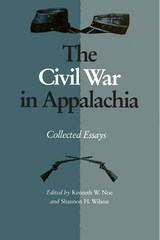

These tales, carefully and thoughtfully transcribed by Sivinski, have been passed down through Appalachia’s oral histories over decades and even centuries. This wonderful selection was mainly drawn from the Archives of Appalachia at East Tennessee State University and special collections at Berea College. Drawing on the work of other regional archivists and folklorists, Sivinski grapples with issues of gender balance in Appalachian storytelling. The problem, Sivinski posits, does not rest with the fairy tale genre itself but in the canonization process, in which
women’s contributions have been diminished as oral traditions become transcribed.
Appalachian women have historically demonstrated resilience, wit, and adaptability, and it is time that more collections of regional folklore reorient themselves to make this fact more apparent. Stories are living, breathing narratives, meant not just to be read but to be read aloud. This timely selection of unique stories, along with beautiful, evocative illustrations, makes Fairy Tales of Appalachia an intriguing addition to the much-contested “fairy tale canon.”
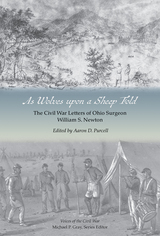
In Lost in Transition: Removing, Resettling, and Renewing Appalachia, Aaron D. Purcell presents a thematic and chronological exploration of twentieth-century removal and resettlement projects across southern Appalachia. The book shares complex stories of loss and recollection that have grown and evolved over time.
This edited volume contains seven case studies of public land removal actions in Virginia, Kentucky, the Carolinas, and Tennessee from the 1930s through the 1960s. Some of the removals include the Tennessee Valley Authority and the Norris Basin, Shenandoah National Park and the New River, the Great Smoky Mountains National Park, and the Keowee-Toxaway Project in northwestern South Carolina. Each essay asks key questions: How did governmental entities throughout the twentieth century deal with land acquisition and removal of families and communities? What do the oral histories of the families and communities, particularly from different generations, tell us about the legacies of these removals? This collection reveals confrontations between past and present, federal agencies and citizens, and the original accounts of removal and resettlement and contemporary interpretations. The result is a blending of practical historical concerns with contemporary nostalgia and romanticism, which often deepen the complexity of Appalachian cultural life.
Lost in Transition provides a nuanced and insightful study of removal and resettlement projects that applies critical analysis of fact, mythology, and storytelling. It illustrates the important role of place in southern Appalachian history. This collection is a helpful resource to anthropologists, folklorists, and Appalachian studies scholars, and a powerful volume of stories for all readers who reflect upon the importance of place and home.

“Mountain Homespun will be of special interest to those studying southern Appalachian handicrafts, the 1890s handicraft revival, and northern Protestant missionary work in turn-of-the-century Appalachia.” —North Carolina Historical Review
“Mountain Homespun is much more than a memoir. It offers unrivaled specific information on the processes of mountain crafts—not only on weaving, spinning, and dyeing, the author’s primary interest, but also on basketry, quilting, and other pursuits. All in all, the book is an important publishing event.”
—Berea College Newsletter
“This is a wonderful book. It belongs at the bedside of every spinner and weaver everywhere.” —Jude Daurelle, Handwoven
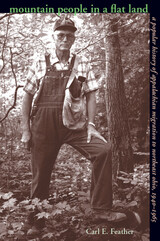
But the cost of a bus ticket was more than a week's wages in a lumber camp, and the mountaineer paid dearly in loss of kin, culture, homeplace, and freedom.
Numerous scholarly works have addressed this migration that brought more than one million mountaineers to Ohio alone. But Mountain People in a Flat Land is the first popular history of Appalachian migration to one community — Ashtabula County, an industrial center in the fabled “best location in the nation.”
These migrants share their stories of life in Appalachia before coming north. There are tales of making moonshine, colorful family members, home remedies harvested from the wild, and life in coal company towns and lumber camps.
The mountaineers explain why, despite the beauty of the mountains and the deep kinship roots, they had to leave Appalachia.
Stories of their hardships, cultural clashes, assimilation, and ultimate successes in the flatland provide a moving look at an often stereotyped people.
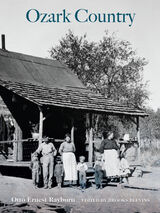
Published just days before America’s entry into World War II, Ozark Country is Otto Ernest Rayburn’s love letter to his adopted region. One of several chronicles of the Ozarks that garnered national attention during the Depression and war years, when many Americans craved stories about people and places seemingly untouched by the difficulties of the times, Rayburn’s colorful tour takes readers from the fictional village of Woodville into the backcountry of a region teeming with storytellers, ballad singers, superstitions, and home remedies.
Rayburn’s tales—fantastical, fun, and unapologetically romantic—portray a world that had already nearly disappeared by the time they were written. Yet Rayburn’s depiction of the Ozarks resonates with notions of the region that have persisted in the American consciousness ever since.
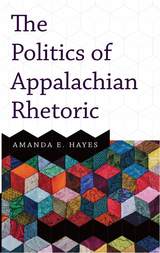
In exploring the ways that Appalachian people speak and write, Amanda E. Hayes raises the importance of knowing and respecting communication styles within a marginalized culture. Diving deep into the region’s historical roots—especially those of the Scotch-Irish and their influence on her own Appalachian Ohio—Hayes reveals a rhetoric with its own unique logic, utility, and poetry.
Hayes also considers the headwinds against Appalachian rhetoric, notably ideologies about poverty and the biases of the school system. She connects these to challenges that Appalachian students face in the classroom and pinpoints pedagogical and structural approaches for change.
Throughout, Hayes blends conventional scholarship with autobiography, storytelling, and language, illustrating Appalachian rhetoric’s validity as a means of creating and sharing knowledge.

In this rich ethnography of life in Appalachia, Scott examines mountaintop removal in light of controversy and protests from environmental groups calling for its abolishment. But Removing Mountains takes the conversation in a new direction, telling the stories of the businesspeople, miners, and families who believe they depend on the industry to survive. Scott reveals these southern Appalachian coalfields as a meaningful landscape where everyday practices and representations help shape a community's relationship to the environment.
Removing Mountains demonstrates that the paradox that faces this community-forced to destroy their land to make a wage-raises important questions related not only to the environment but also to American national identity, place, and white working-class masculinity.

Riding on Comets is the true story of an only child growing up in a working-class family during the 1950s and ‘60s.
As the family storyteller, Cat Pleska whispers and shouts about her life growing up around savvy, strong women and hard-working, hard-drinking men. Unlike many family stories set within Appalachia, this story provides an uncommon glimpse into this region: not coal, but an aluminum plant; not hollers, but small-town America; not hillbillies, but a hard-working family with traditional values.
From the dinner table, to the back porch, to the sprawling countryside, Cat Pleska reveals the sometimes tender, sometimes frightening education of a child who listens at the knees of these giants. She mimics and learns every nuance, every rhythm—how they laugh, smoke, cuss, fight, love, and tell stories—as she unwittingly prepares to carry their tales forward, their words and actions forever etched in her mind. And finally, she discovers a life story of her own.
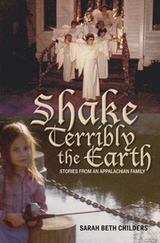
In a thoughtful, humorous voice born of Appalachian storytelling, Childers brings to life in these essays events that affected the entire region: large families that squeezed into tiny apartments during the Great Depression, a girl who stepped into a rowboat from a second-story window during Huntington’s 1937 flood, brothers who were whisked away to World War II and Vietnam, and a young man who returned home from the South Pacific and worked his life away as a railroad engineer.
Childers uses these family tales to make sense of her personal journey and find the joy and clarity that often emerge after the earth shakes terribly beneath us.

new South, To Make My Bread revolves around a family of Appalachian
mountaineers—small farmers, hunters, and moonshiners—driven
by economic conditions to the milltown and transformed into millhands,
strikers, and rebels against the established order. Recognized as one
of the major works on the Gastonia textile strike, Grace Lumpkin's novel
is also important for anyone interested in cultural or feminist history
as it deals with early generations of women radicals committed to addressing
the difficult connections of class and race. Suzanne Sowinska's introduction
looks at Lumpkin's volatile career and this book's critical reception.
Originally published in 1932
"[The book's] meaning
rises out of people in dramatic conflict with other people and with the
conditions of their life. . . . [Lumpkin] treats her theme with a craftsman's
and a psychologist's respect. The novel springs naturally from its author's
immersion in and personal knowledge of her absorbing subject material."
-- The New York Times
"Unpretentious . . .
written in a simple and matter-of-fact prose, and yet reading it has been
a more real, more satisfying experience than that which almost any other
recent work of fiction has given me. I cannot imagine how anyone could
read it and not be moved by it." -- The Nation
"A beautiful and sincere
novel, outstanding." -- The New Republic
The late

A powerful counter-narrative to the current conversation, Voices Worth the Listening presents three real stories of Appalachian people that are unvarnished and more than simply anecdotal. Race, class, drug culture, education, and socioeconomic mobility are all addressed in some way by these narratives. While the themes that emerge in these stories are by no means unique to Appalachia—indeed, they resonate in some ways with the experiences of disadvantaged and marginalized people in other regions of the country—these three women have lived much of their lives outside of the mainstream and their narrated experiences become a meaningful signpost for the people of Appalachia.
READERS
Browse our collection.
PUBLISHERS
See BiblioVault's publisher services.
STUDENT SERVICES
Files for college accessibility offices.
UChicago Accessibility Resources
home | accessibility | search | about | contact us
BiblioVault ® 2001 - 2024
The University of Chicago Press









